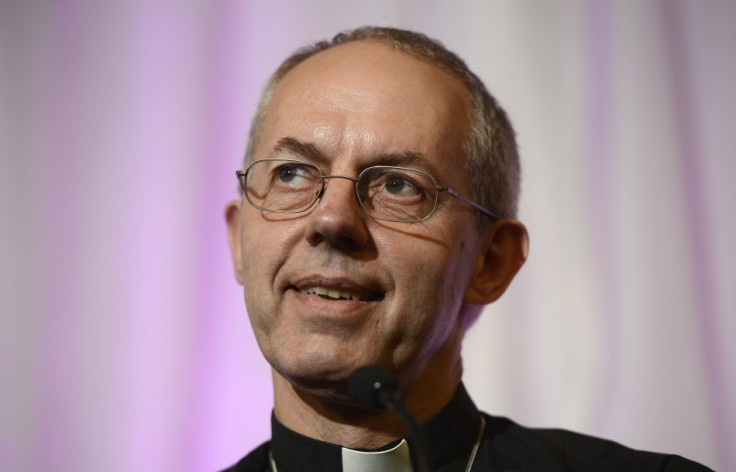Archbishop of Canterbury Criticises Benefits Cuts

The Archbishop of Canterbury has voiced concerns about the effect of proposed benefits cuts on children, and urged the government to provide greater support for struggling families.
In his first major public speech since being appointed Archbishop, Justin Welby attacked the plans championed by work and pensions secretary Iain Duncan Smith to cap working age benefit rises and some tax credits at 1 per cent of inflation for three years.
In a statement from Lambeth Palace, Welby said: "As a civilised society, we have a duty to support those among us who are vulnerable and in need. When times are hard, that duty should be felt more than ever, not disappear or diminish. It is essential that we have a welfare system that responds to need and recognises the rising costs of food, fuel and housing.
"The current benefits system does that, by ensuring that the support struggling families receive rises with inflation.
"These changes will mean it is children and families who will pay the price for high inflation, rather than the government."
Speaking on the BBC's Andrew Marr show, shadow home secretary Yvette Cooper described the cuts as "immoral" and said that Welby was "absolutely right."
"They should just have the benefits go forward linked to inflation this year," said Cooper.
"You could do it by paying for it by restricting pensions tax relief on the very highest earners. That would be a fair way to help everybody."
She added new mothers would lose £180 a year in maternity benefits as a result of the 1% cap.
"I think it is pretty simple on Mother's Day to say that the government should help mums not millionaires," she said.
The bill is due to be debated in the House of Lords this week, and the bishops who are members of the upper chamber have fielded an amendment to the government's bill, scrapping the cuts that would have the greatest impact on children.
The comments come after 43 Church of England bishops wrote to the Daily Telegraph protesting the cuts and warning the government that up to 200,000 children could be tipped into poverty as a result.
The Archbishop of York, John Sentamu, has also leant his support to the message.
In the letter, they say: "Children and families are already being hit hard by cuts to support, including those to tax credits, maternity benefits and help with housing costs," they write.
"They cannot afford this further hardship penalty. We are calling on the House of Lords to take action to protect children from the impact of this bill."
A number of other organisations, including the Roman Catholic and Methodist Churches, the Baptist Union, the United Reform Church and the Evangelical Alliance have also leant their support to the letter.
Duncan Smith argues that it is unfair for benefits to rise more than pay, and has highlighted figures that show that benefits have risen by 20 per cent in the last five years, while wages have risen by 12 per cent on average.
Labour, which opposes the cut, has replied by pointing out that whilst pay has risen by 36 per cent in the last decade, Jobseekers allowance has risen by just 32 per cent.
Former Liberal Democrat leader Paddy Ashdown, who is responsible for the party's 2015 election strategy, defended the government's record on helping poorer families.
"Of course all of us are concerned," he said. "That's why indeed the Liberal Democrats have such a commitment to making sure that our contribution to tackling the terrible deficit this country was left, in large part but not exclusively by the failures of the Labour government previously, are tackled with fairness in mind.
A Department for Work and Pensions spokeswomen said: "In difficult economic times we've protected the incomes of pensioners and disabled people, and most working age benefits will continue to increase 1%.
"This was a tough decision but it's one that will help keep the welfare bill sustainable in the longer term.
"By raising the personal allowance threshold we've lifted two million people out of tax altogether, clearly benefiting people on a low income."
© Copyright IBTimes 2025. All rights reserved.





















